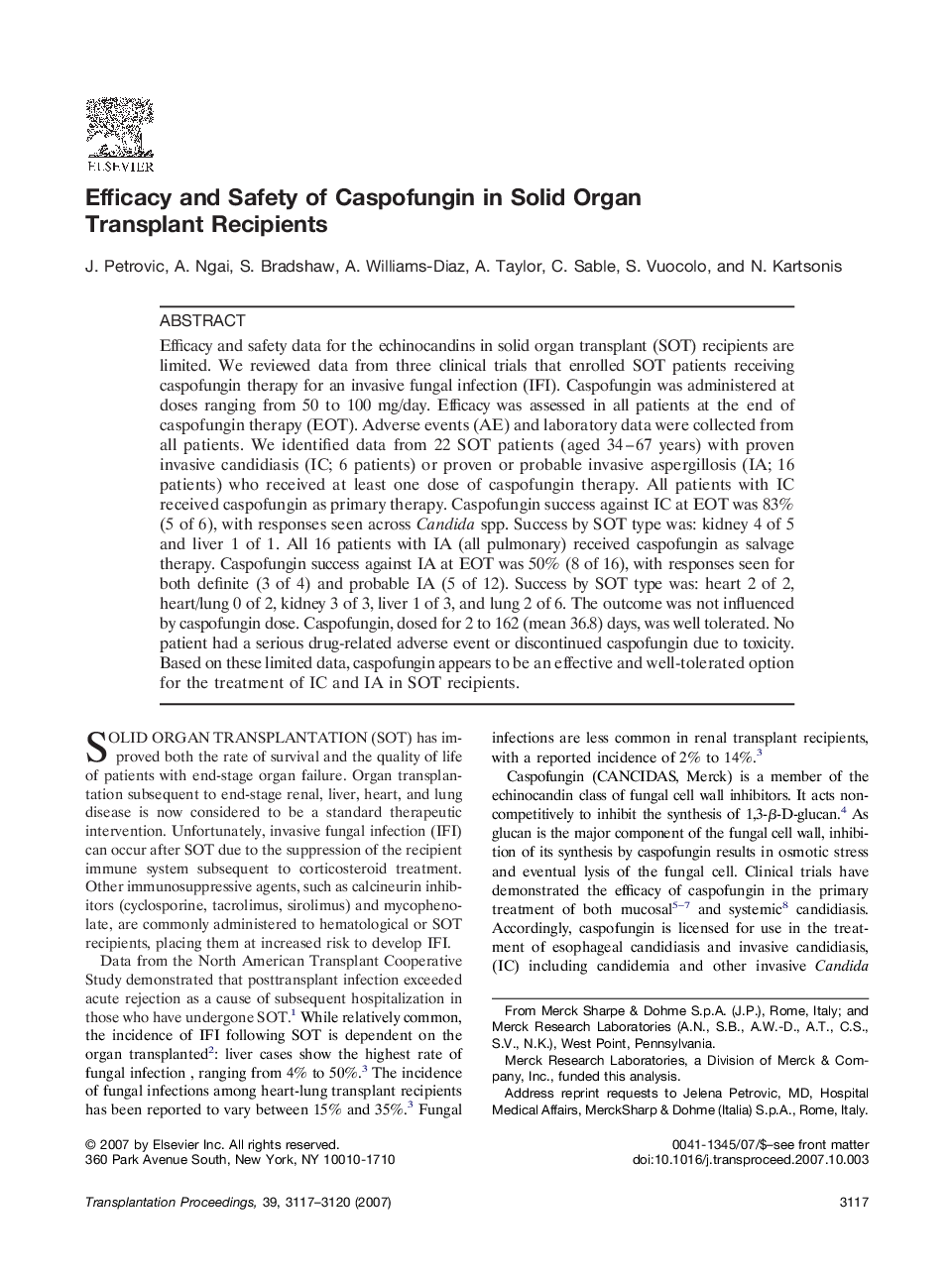| Article ID | Journal | Published Year | Pages | File Type |
|---|---|---|---|---|
| 4262737 | Transplantation Proceedings | 2007 | 4 Pages |
Efficacy and safety data for the echinocandins in solid organ transplant (SOT) recipients are limited. We reviewed data from three clinical trials that enrolled SOT patients receiving caspofungin therapy for an invasive fungal infection (IFI). Caspofungin was administered at doses ranging from 50 to 100 mg/day. Efficacy was assessed in all patients at the end of caspofungin therapy (EOT). Adverse events (AE) and laboratory data were collected from all patients. We identified data from 22 SOT patients (aged 34–67 years) with proven invasive candidiasis (IC; 6 patients) or proven or probable invasive aspergillosis (IA; 16 patients) who received at least one dose of caspofungin therapy. All patients with IC received caspofungin as primary therapy. Caspofungin success against IC at EOT was 83% (5 of 6), with responses seen across Candida spp. Success by SOT type was: kidney 4 of 5 and liver 1 of 1. All 16 patients with IA (all pulmonary) received caspofungin as salvage therapy. Caspofungin success against IA at EOT was 50% (8 of 16), with responses seen for both definite (3 of 4) and probable IA (5 of 12). Success by SOT type was: heart 2 of 2, heart/lung 0 of 2, kidney 3 of 3, liver 1 of 3, and lung 2 of 6. The outcome was not influenced by caspofungin dose. Caspofungin, dosed for 2 to 162 (mean 36.8) days, was well tolerated. No patient had a serious drug-related adverse event or discontinued caspofungin due to toxicity. Based on these limited data, caspofungin appears to be an effective and well-tolerated option for the treatment of IC and IA in SOT recipients.
